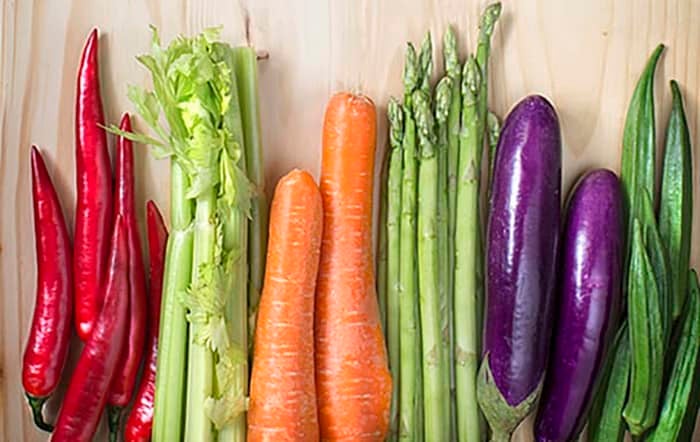```html
Navigating the Grocery Aisle: Your Guide to Organic at Whole Foods vs. Conventional Stores
Standing in the produce section, overwhelmed by the choices? You're not alone! Deciding between organic and conventional produce can feel like navigating a minefield, especially when considering the price differences between stores like Whole Foods and your local conventional grocery store. This guide cuts through the confusion, helping you prioritize what to buy organic based on pesticides, your budget, and your health goals.
The Great Organic Debate: Why Bother?
The decision to buy organic often boils down to concerns about pesticides, environmental impact, and potential health benefits. While conventional farming uses synthetic pesticides to protect crops, organic farming relies on natural methods. This can lead to lower pesticide residues in organic produce, which many people prefer to minimize their exposure to.
Here's why the "organic vs. conventional" debate matters:
- Pesticide Exposure: Some studies suggest that consuming organic foods can reduce your exposure to certain pesticides.
- Environmental Impact: Organic farming practices often promote soil health, biodiversity, and water conservation.
- Potential Health Benefits: While research is ongoing, some studies suggest that organic foods may have higher levels of certain nutrients.
Whole Foods vs. Conventional Grocers: A Pricing Perspective
It's no secret that Whole Foods Market often has a reputation for higher prices, particularly when it comes to organic produce. While they offer a wide selection of organic options, comparing prices to conventional grocery stores is crucial. You might find that some organic items at your local store are competitively priced or even cheaper than their Whole Foods counterparts, especially if you shop sales and utilize store loyalty programs.
Consider this: focus your Whole Foods purchases on items where the organic difference is significant or where they have a specific advantage (e.g., unique organic brands or local organic produce). For everyday staples, compare prices at both Whole Foods and conventional stores to make informed decisions.
The Dirty Dozen and Clean Fifteen: Your Organic Shopping Guide
The Environmental Working Group (EWG) publishes an annual list called the "Dirty Dozen," which highlights the fruits and vegetables with the highest pesticide residues. Conversely, the "Clean Fifteen" lists the produce with the lowest pesticide residues. Using these lists can help you prioritize which items to buy organic.
The Dirty Dozen: Always Buy Organic When Possible
These fruits and vegetables consistently have the highest levels of pesticide residue:
- Strawberries
- Spinach
- Kale, Collard Greens & Mustard Greens
- Peaches
- Pears
- Nectarines
- Grapes
- Apples
- Bell Peppers & Hot Peppers
- Cherries
- Blueberries
- Green Beans
The Clean Fifteen: Generally Safe to Buy Conventional
These fruits and vegetables typically have the lowest levels of pesticide residue, making them generally safe to buy conventional:
- Avocados
- Sweet Corn
- Pineapple
- Onions
- Papaya
- Sweet Peas (Frozen)
- Asparagus
- Honeydew Melon
- Kiwi
- Cabbage
- Watermelon
- Mushrooms
- Mangoes
- Sweet Potatoes
- Carrots
Beyond Produce: Other Organic Considerations
The "Whole Foods vs. Conventional: What to Buy Organic" decision extends beyond fruits and vegetables. Consider these categories:
- Dairy and Meat: Organic dairy and meat come from animals raised without antibiotics, synthetic hormones, or genetically modified feed. This can be a significant benefit for some consumers.
- Grains: Opting for organic grains, particularly those that are unrefined, can reduce your exposure to pesticides and herbicides.
- Processed Foods: Read labels carefully! While some processed foods at Whole Foods may be organic, others are not. Understanding ingredient lists is key.
Expert Opinions and Emerging Trends
The organic food market continues to grow, driven by increasing consumer awareness of health and environmental concerns. Experts emphasize the importance of a balanced approach, considering both the benefits of organic food and the affordability of conventional options.
"Choosing organic is a personal decision," says Dr. Jane Smith, a nutritionist specializing in sustainable diets. "Focus on reducing your exposure to the most concerning pesticides, while also prioritizing a diverse and balanced diet."
Frequently Asked Questions (FAQs)
Is organic food always healthier?
While some studies suggest that organic foods may have higher levels of certain nutrients and lower pesticide residues, the overall nutritional value is often similar to conventional foods. The primary benefit of organic is reduced pesticide exposure and potentially better environmental practices.
Is it worth buying organic if I'm on a tight budget?
Absolutely! Use the Dirty Dozen and Clean Fifteen lists to prioritize which items to buy organic. Focus on the Dirty Dozen and choose conventional options for the Clean Fifteen. Look for sales and discounts at both Whole Foods and conventional stores.
Are there any downsides to eating organic food?
The main downside is often the higher cost. Organic produce may also have a shorter shelf life than conventionally grown produce. However, the benefits of reduced pesticide exposure and environmental impact often outweigh these drawbacks for many consumers.
Make Informed Choices for a Healthier You
Choosing between organic and conventional food, whether at Whole Foods or your local grocery store, is a personal decision. By understanding the Dirty Dozen and Clean Fifteen lists, comparing prices, and considering your budget and health goals, you can make informed choices that support your well-being and the environment. Start small, focus on the most important items, and enjoy the benefits of a healthier, more sustainable lifestyle. Ready to make a change? Start with one item from the Dirty Dozen on your next shopping trip!
```
